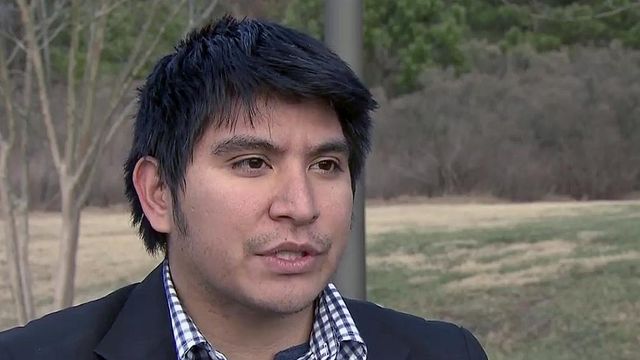Advocates gather in Durham to express concerns over end of TPS
An end to the Temporary Protected Status program could force nearly 200,000 Salvadorans to leave the United States. On Saturday, immigration advocates and community members teamed up in Durham to voice concerns.
Posted — UpdatedPresident Donald Trump says Salvadoran TPS recipients have until Sept. 9, 2019, to leave the country or obtain a green card, a new regulation that could impact nearly 6,000 people in North Carolina.
"It's very problematic for a lot of us because a lot of our folks are either forced to go into hiding or make decisions on taking or separating families," said Eliazar Posada with El Centro Hispano.
Several civil and humanitarian organizations teamed up with El Centro Hispano at the Department of Immigration Services in Durham to send a message to the current administration - they're preparing and they're mobilizing.
But also to drive home one of their chief concerns.
TPS was designed to give refuge to people from designated countries during times of conflict, including natural disasters and other extraordinary difficulties. However, Trump argues what was meant to be temporary help, has been used by some recipients for more than a decade.
"The crime, the lack of employment. The country has no conditions right now to receive 260,000 Salvadorans," Diaz said.
• Credits
Copyright 2024 by Capitol Broadcasting Company. All rights reserved. This material may not be published, broadcast, rewritten or redistributed.






